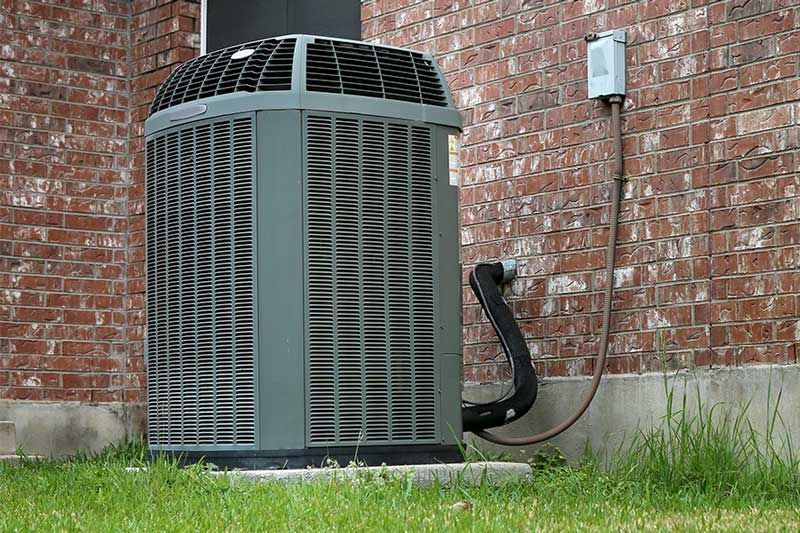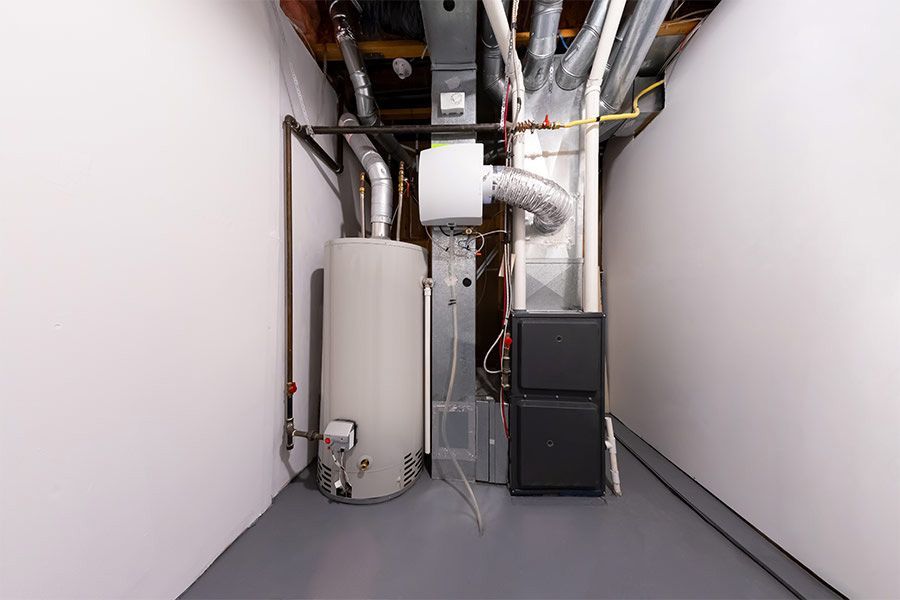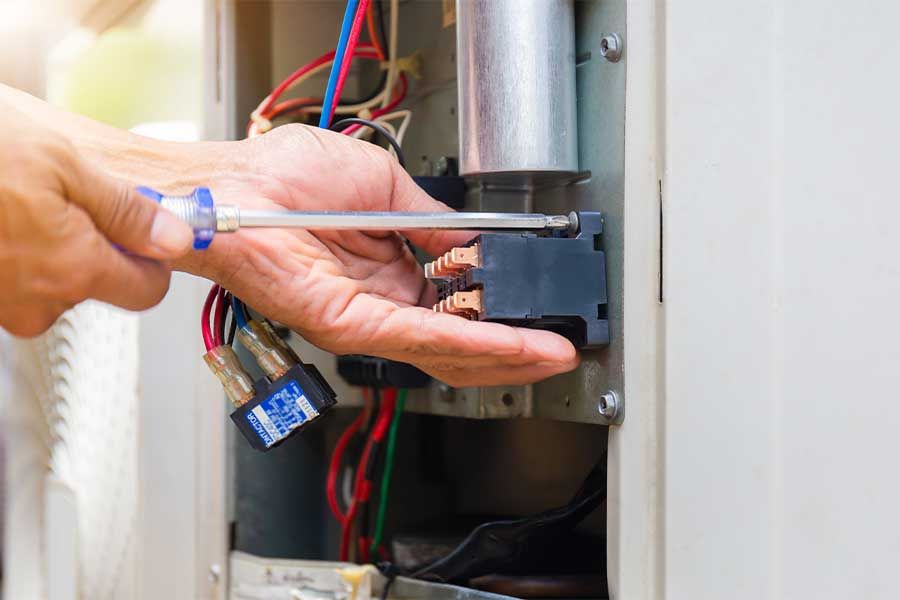What Causes Mold in Air Conditioners and How Do I Prevent It?
Mold can suddenly grow in an air conditioner. The expert HVAC team at Professional Services cleans, sanitizes, and removes all traces of mold. Neglecting mold in your air conditioner potentially leads to health complications and equipment damage.
Unless you regularly clean and inspect your air conditioner, mold spores will spread throughout your home. Contact the indoor air quality experts in Port Washington at Professional Services to handle all mold problems.
What Causes Mold in Air Conditioners?
Mold tends to grow rapidly in moist and dark environments. Under the right conditions, mold thrives in your air conditioner. Let’s look closely at the factors causing mold to grow and multiply.
1. Moisture
Air conditioners remove moisture from indoor air as part of their normal operation cycle. The air passing through your air conditioner causes moisture and condensation to build up over time. If you notice water around the unit, you must address it immediately to prevent mold growth.
2. Temperature
Mold tends to grow in temperatures between 60 and 80 degrees. These temperatures, combined with high humidity levels, cause mold to grow. Additionally, temperature differences in your home exacerbate the problem by leading to condensation.
3. Nutrients
Mold feeds on organic matter, including dust, dead skin cells, pollen, and other indoor pollutants. These pollutants promote mold growth as they travel through air filters and ducts.
4. AC Problems
Common air conditioner issues may result in moisture leaks, leading to mold. First, blocked condensate drains cause water to accumulate and seep into the unit. Second, if you do not turn your air conditioner on for a long time, water droplets will collect on the ducts or air handler.
Signs You Have Mold in Your Air Conditioner
Air conditioners may show signs of mold in obvious or subtle ways. If you notice that the odor increases when you turn on your air conditioner, start by inspecting the unit. A musty or mildewy odor is a tell-tale sign of mold.
Avoid touching mold with your bare hands. Noticeable mold colors include black, brown, green, white, pink, yellow, and orange. Look for other signs of mold, such as:
- Black dust on the air vents
- Visible mold on air ducts
- Mold inside the air conditioner
Can Mold in Your Air Conditioner Affect Your Health?
Mold can develop in your air conditioner and adversely affect your family’s health. Individuals with a mold allergy may experience severe symptoms. The most common symptoms of mold exposure include:
- Coughing
- Wheezing
- Skin rash
- Itchy or red eyes
- Nasal congestion
- Irritated throat
How To Get Rid of Mold in Air Conditioning Systems
The mold removal process depends on the type of air conditioner you own. At first glance, mold in your air conditioner may not seem hard to clean—and with good reason. Most experts do not recommend removing the mold yourself, as you risk contaminating other areas of your home.
1. Replace the System
In cases of extensive mold damage, replacing the air conditioner could cost less than mold removal. It’s possible to miss or leave traces during mold removal, leading to regrowth. Consider replacement if you have a freestanding, window, or cheaper AC unit.
2. Hire a Professional
Sometimes, replacing an air conditioner does not make sense. If you have a central air system, hire a professional to remove the mold. Performing this complicated task requires special tools to ensure that the air conditioning and ventilation systems don’t get damaged.
3. DIY Process
If you have a small air conditioner, you might attempt to remove the mold yourself. Before you begin, wear protective gear such as a face mask, goggles, and gloves. Move the air conditioner to an isolated place and clean the unit with a mixing ratio of one cup of vinegar to one gallon of water.
How To Prevent Mold in Your Air Conditioner
Mold will not grow without moisture. A professional can help if you have started experiencing symptoms or notice signs of mold infestation. Follow these steps to prevent mold from growing in your air conditioner:
1. Replace the air filters regularly—every 30 to 60 days, or as recommended. Clogged air filters cannot block mold spores and other airborne pollutants.
2. Use a special air filter that combats mold. Buy high-efficiency particulate air (HEPA) filters to remove mold spores, pollutants, and allergens from indoor air.
3. Get a clinically proven ultraviolet (UV) light system to improve your home’s indoor air quality. UVC radiation effectively stops the growth of mold and bacteria.
4. Insulate and seal air ducts to prevent condensation. Sealing the ducts will protect non-air-conditioned spaces like the attic that need to remain dry and free of mold.
5. Regularly empty and clean drip pans by rinsing them with a mild soap solution. Also, check the drip tray for cracks, holes, or rust spots that may allow water to leak.
6. Buy a humidifier to reduce excessive humidity levels in your home. Overly humid indoor environments can lead to mold growth.
7. Schedule an air conditioning check by an HVAC professional once every six months. Routine inspections and maintenance are great for catching mold problems early on.
8. If you go on vacation, do not turn off your air conditioner, as mold grows in unattended units. Set your air conditioner to a high temperature to keep the air moving periodically without raising your electric bill.
9. When replacing an air conditioning unit, select the right size and seal off the joints properly. Moisture can easily accumulate in open spaces.
Work With an Experienced HVAC Company
Professional Services has certified HVAC technicians who use best-in-class protocols and guidelines to remove mold safely and effectively. Our team will examine moisture sources in and around your air conditioner, including vents, drains, and coils. We will ensure that the mold does not return and show you how to minimize air duct condensation.
Contact Professional Services today for more information and to remove mold in your air conditioner. Call us at
(262) 218-2636.
You might also like







